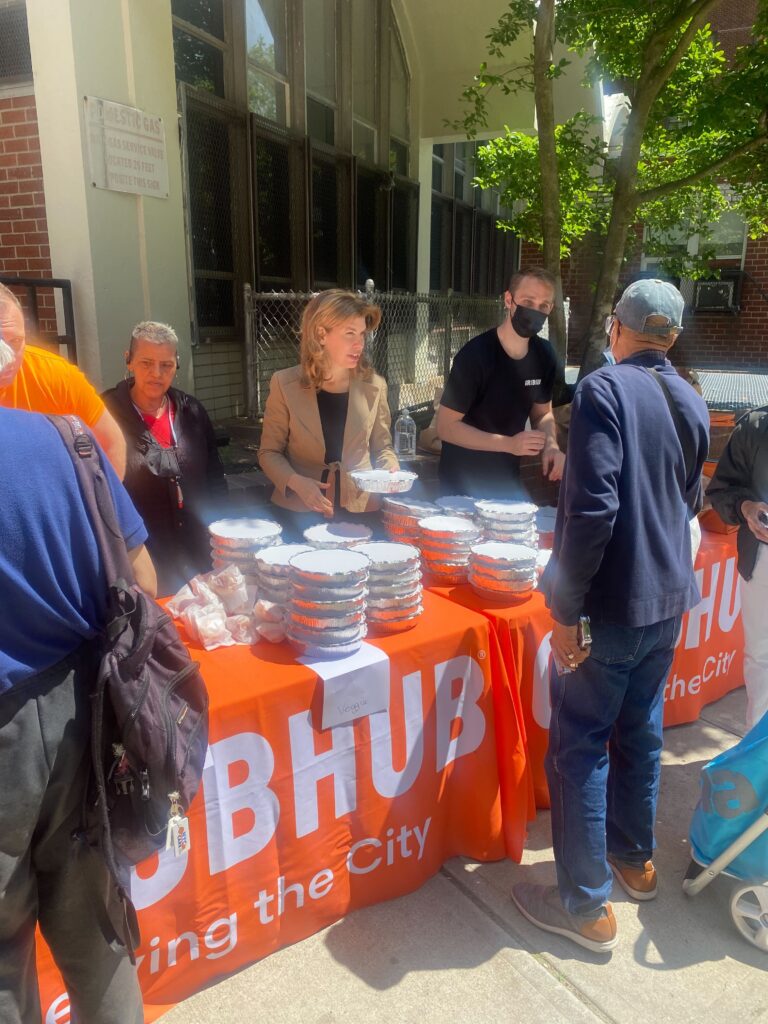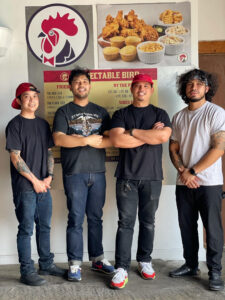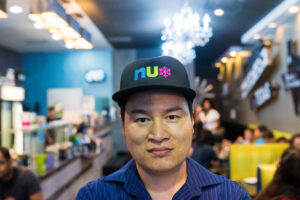In 2021, $2.1 Million in Grants, made possible by the Grubhub Community Fund, supported LGBTQ+ and Allied Restaurants and Establishments
By Justin Nelson, Co-Founder & President of the National LGBT Chamber of Commerce
Bars and restaurants have long served as safe spaces for historically marginalized LGBTQ+ people. However, the COVID-19 pandemic made it increasingly difficult for these independent restaurants and bars to stay in business.
Thanks to support from the Grubhub Community Fund and Grubhub diners through its Donate the Change program, NGLCC distributed nearly $2.1 million in grants to over 100 LGBTQ+ and allied restaurants in 2021. To help ensure we reached a wide range of grant applicants, we partnered with over 30 LGBTQ+ Affiliate Chambers across the country who shared the opportunity within their respective communities.
Building on last year’s success, we are continuing our partnership with Grubhub in 2022 with the support of a $2.1 million grant from the Grubhub Community Fund. This year, we will focus the restaurant grant program on LGBTQ+ and allied restaurants and establishments in New York City, Chicago, Boston, Philadelphia, Baltimore, Denver, and Portland, as well as cities throughout California.
The gratitude expressed by last year’s grant recipients was extremely heartwarming and reminds us why the work we do is so important to the LGBTQ+ community. And, equally as important, why continuing the work is a high priority.
Penny Baldado, Owner of Cafe Gabriela in Oakland, California
“As a trans-masculine and queer, immigrant person of color, I’ve worked hard and put all my love and energy into building a beautiful and welcoming space in Café Gabriela. I’ve remained resilient through COVID and this grant is the injection of funds that we need to continue along our journey to full recovery.”
David Perruzza, Owner of League of Her Own and Pitchers DC in Washington, D.C.
“Building community in a fun and safe place has been our mission since the very beginning. We’re relieved and thankful for these funds. This grant literally saved my business, and I can’t thank Grubhub and NGLCC enough for that reality. We are looking forward to more stable days ahead.”
Joy Crump, Founding Partner and Chef at FOODE + Mercantile in Fredericksburg, Virginia
“The past 19 months have been some of the most challenging in my career. Restaurant people are resilient people, but we are forever changed, and these funds are crucial as we continue to evolve with new technologies and tools to help us compete in this new normal.
Helping the LGBTQ+ business community thrive is core to who we are at NGLCC, and partnering with organizations like Grubhub, who shares our mission to help these independent businesses thrive, helps that mission become reality.
To learn more about Grubhub’s Community Impact programs, click here.
About the Author
As Co-Founder and President of the National LGBT Chamber of Commerce (NGLCC), Justin Nelson has the privilege of representing the LGBTQ+ business community and overseeing the largest LGBT economic advocacy and business development organization in the world. NGLCC has over 50 LGBTQ+ affiliate chambers in the United States representing America’s 1.4 million LGBTQ+ business owners.







